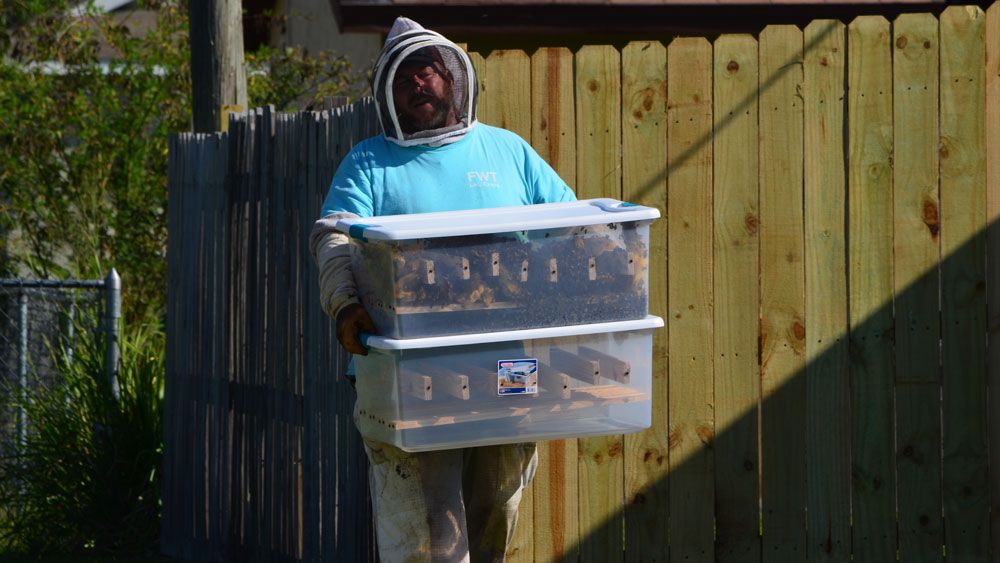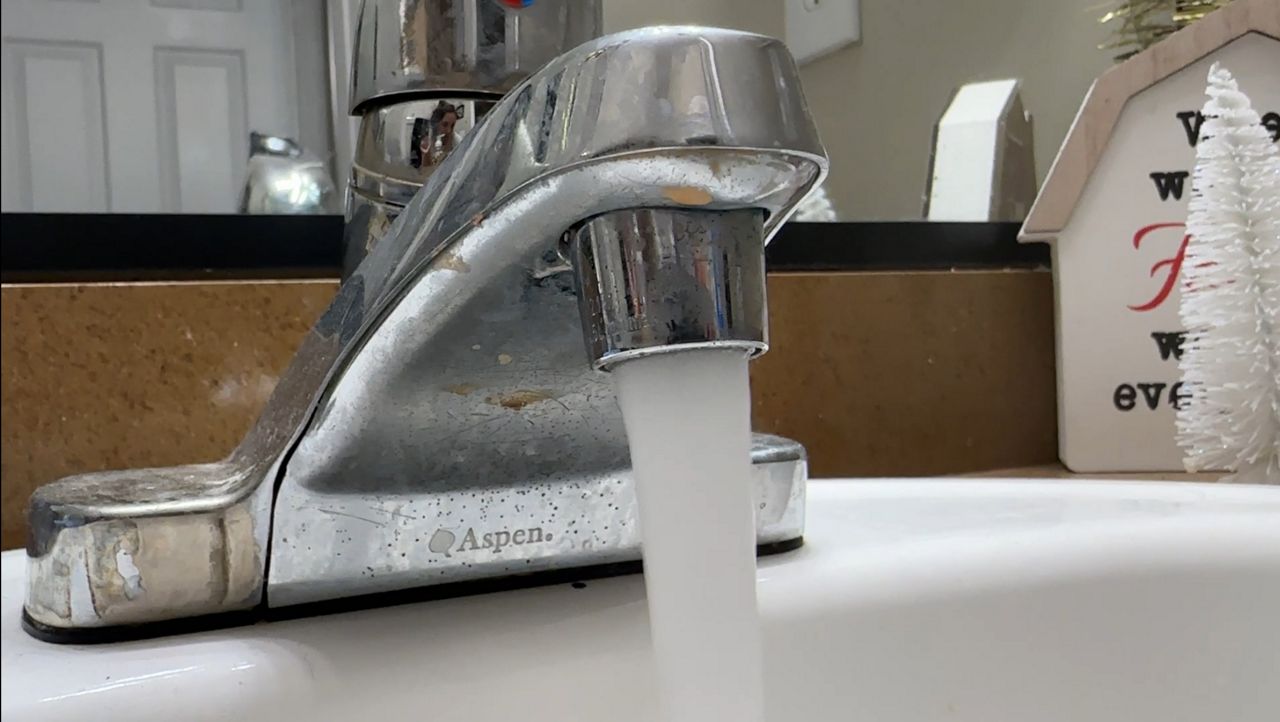PALM BAY, Fla. — The residents of a big beehive on a Palm Bay property terrorized a family in a neighboring home for months. Then they spread into the family's yard.
- Bee colony on neighbor's property spread
- Thousands of bees living in shed
- Bees headed to local beekeeper
"Everyone in the house has been stung, except my daughter who refuses to go out in the backyard," said Kim Brown.
"They are very aggressive, as soon as they land on you they sting right away without any way of brushing them off," Brown said.
Countless bees infested the wall of a shed on the neighor's property, growing everyday.
The Browns put up a fence, but just this week, the bees built a mother-in-law suite in their own tree.
"The problem has gotten worse," said Brown.
Swooping in to the rescue, Brevard County-based Florida Wildlife Trappers.
After getting permission from the property owner, they meticulously tore apart the shed, exposing thousands of aggravated bees.
"They take a really defensive stance and are very aggressive," said Leo Cross of Florida Wildlife Trappers.
The team used a vacuum to capture the bees, and the plan was to hand them over to a local beekeeper.
But then a real local solution buzzed in. Another neighbor actually raises bees!
Paul Schultze's first batch began in November with another hive caught in the neighborhood.
"You need more swarms to make honey, so that's what we would like to do with it," he said.
With that, problem solved.
"I can use my backyard again, my dogs are safe, my family," said Brown.
Homeowners are responsible for removing unwanted beehives. It's not illegal to kill bees, but they are important to the environment for pollination.
Several species of bee are on the U.S. endangered species list. While none of them are in Florida, Florida pays special attention to bees because of their necessity in pollinating crops, iincluding special rules for dealing with feral bee colonies, and for minimizing exposure to pesticides.








